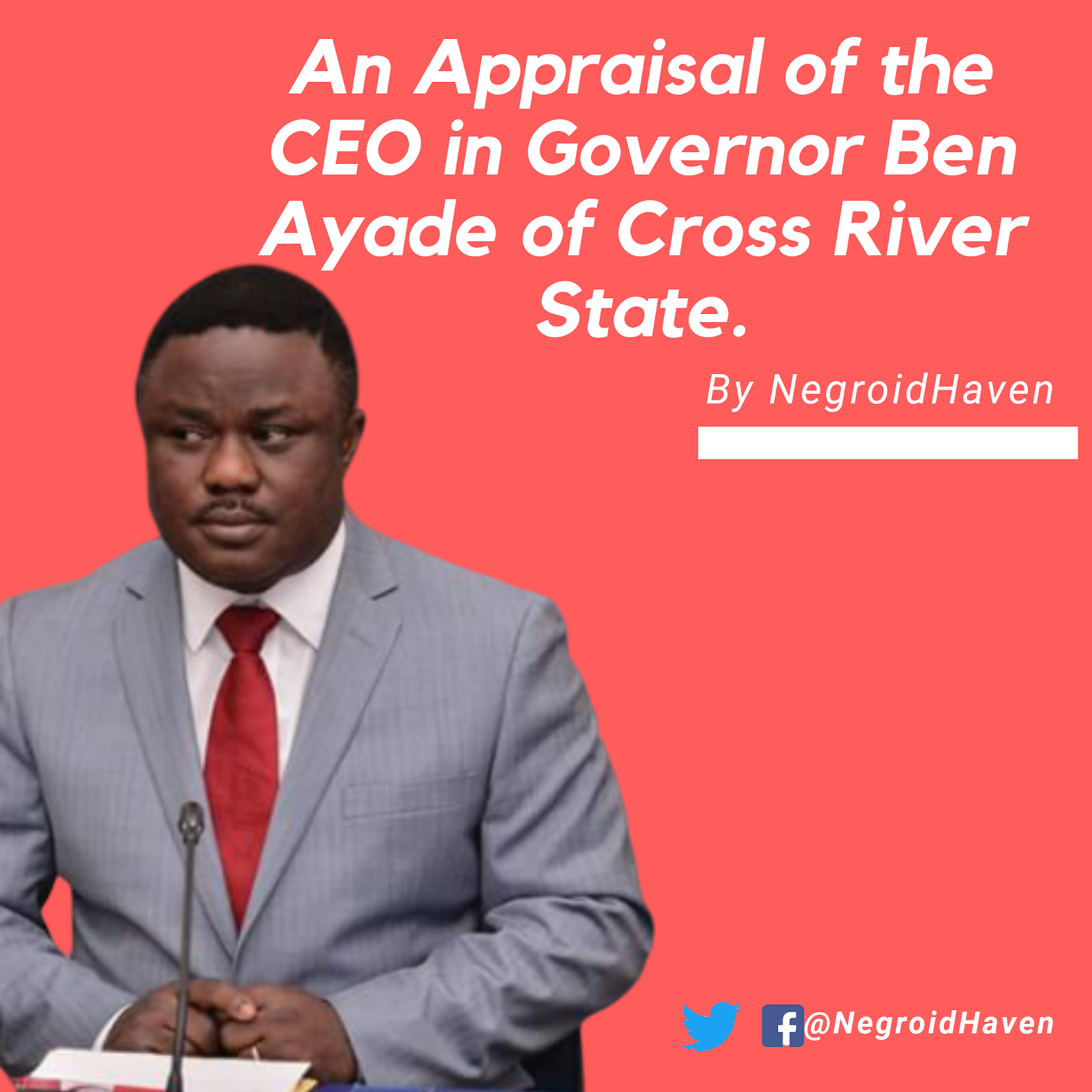
EDITORIAL
According to the Framework for Defining and Assessing Public Office Holder's Performance, 'directing' is perceived to be a management 'ability to direct people, resources and talents to achieve results'. But lexically, the verb 'to direct' is understood as 'to dominate and determine the course of…' The objective of this editorial piece, therefore, is to show to what extent the incumbent governor of Cross River State has dominated and determined the course of the state between May 2015 and January 2020.
Management experts have variously concurred that directing lies at the core of management without which set goals are not achieved. The cardinal role of directing in an organisation is such because of the underlying principles, characteristic elements, and process of the phenomenon.
Research has it that there are four basic elements of directing, to wit,
*supervising,
*motivating,
*leadership, and
*communication.
I had previously reflected on the subject of supervision: https://www.facebook.com/314791978715840/posts/1225950454266650/ whereas, within the subject —Role Model, I dwelt heavily on motivation: https://www.facebook.com/314791978715840/posts/1235144693347226/ Meanwhile, the first category of this series is on leadership which reflected on 6 topical issues: Supervision https://www.facebook.com/314791978715840/posts/1225950454266650/, Support https://www.facebook.com/314791978715840/posts/1230750053786690/, Role Model https://www.facebook.com/314791978715840/posts/1235144693347226/, and Catalyst https://www.facebook.com/314791978715840/posts/1240094019518960/. While TDN has assessed the said public office under Mentorship https://www.facebook.com/1014037398726428/posts/1741038049359689/.
The principles of direction are:
-goal allocation,
-initiating action,
-accountability,
-decisiveness, and
-scalar chain.
It should be recalled that I had highlighted the arguments that directing, amongst the trio of —coaching, supporting and delegating constitute one of the leadership styles in the Situational Leadership Model which aims at ultimately delegating power to the follower, in this case the appointees of His Excellency the Executive Governor of Cross River State. Now, it cannot be said that there is delegation if there is no accompanying authority, responsibility and accountability.
To begin with there has been controversy as to whether the Governor should officially hand over to the Deputy Governor of the state, Prof. Ivara Ejemot Esu when he embarks on oversees travels sourcing for investors. There was an instance when the governor travelled for ten weeks without notifying the State Legislature or transmit power to the Deputy Governor, Esu. Granted that the governor is not demanded by the constitution to do so except on occasions of embarking on vacation or is unable to discharge duties as governor, the fact still remains that for these ten weeks, there was no governor or acting governor in the state. This had grave implications as it were. Rather, when the governor is not around, there are rumours of one of the younger siblings of the governor, running the affairs of the state. Gov Ayade has even referred to Dr Frank Ayade as co-Governor! https://ParadiseNews.ng/ 36027/paradise-puppet-governor
Secondly, and as a corollary, late last year, His Excellency delisted over 2,500 from the state civil service payroll on the argument that he did not approve their engagement https://leadership.ng/2019/10/18/as-ayade-esu-square-up-over-workers-recruitment/. Incidentally, they were reportedly engaged by the Deputy Governor, Esu on one of those travelling jamboree of the state governor. That is to say, the notion of authority, responsibility and accountability inherent components in delegation were profoundly negated. This in turn affects directing which embodies: supervising, motivating, leadership, and
communication.
Thirdly, there has been a challenge with the bogus appointments of His Excellency into MDAs. For instance, between 29 May 2015 and 26 May 2019, there were over 3,500 appointees which Ayade said was born out of the desire to 'put food on the table' of Cross Riverians. Put differently, the appointments were not made to ultimately benefit the electorates but to feed public officers. This explains why over 90% of these appointees did not have ToRs, office spaces, imprests, KPIs and reviews. This was a clear case of directing gone awry because and obviously the principles of direction being goal allocation, initiating action, accountability, decisiveness, and
scalar chain were lacking.
I had emphasised the fact and argument that the Executive Governor seem to want to bequeath industrialisation as a legacy of his government to Nigerians resident in and indigenous to Cross River. So, we have the industrial drive of His Excellency as itemised thus:
1. Cross River Garment Factory,
2. Cross River Toothpick Factory
3. Rice Seed and Seedling Multipliation factory,
4. Cross River Pharmaceutical Company;
5. Calabar Noodles Factory;
6. Calabar Chicken Factory,
7. Cocoa Factory in Ikom,
8. Rice Mill in Ogoja,
9. Piles and Pylon factory in Akamkpa;
10. Industrial block industry in Ogoja; etc.
While this seem to be an initiative in the right direction, the challenge has been, why is it that, in Ayade's industrialisation, former governors Donald Duke's tourism initiative (1999 – 2007) and Liyel Imoke's rural infrastructural development and agriculture policy bent (2007 to 2015) died without hopes for resurrection? How will industrialisation be actualised without tourism and rural development /agriculture? Is Ayade actually industrilising Cross River or busy littering questionable and white elephant factories across the state? In this context, is Ayade efficiently utilising state's resources —both human and material in the right direction?
That being said, however, taking a look at the dwindling federal allocation that accrues to the State as well as the meagre Internal Generated Revenue with the debt profile, and the gargantuan monthly wage bill, one would wonder how Ayade can steer the state in the direction of wealth and financial prosperity. That is, let it be said that in other instances, directing had everything equal with it and was thus proceeding in the right direction, with a state of near no-finance, how would Ayade even direct resources in the state to actualise set objectives?
Given the validity of the arguments both for and against the directing capacity of Gov Ayade, would you rate him a good director? Between 1, 2 and 3 where do you place His Excellency?








